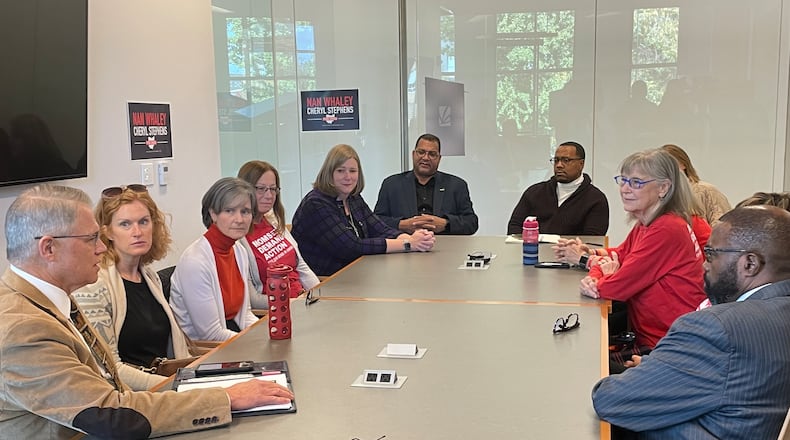She criticized his signing of a stand-your-ground law, allowing permitless carry in the state and making it easier for teachers to carry weapons in the classroom.
“It’s a personal issue to me (and) why I’m in this race for governor,” Whaley said. “What happened in Dayton in August 2019, I think as you can see ... changed many of our lives and we have been called to do something by the people of Dayton and we’re not going to stop until we get laws passed that make our community more safe.”
Whaley said gun laws passed under DeWine have made the state less safe.
“What we are talking about is rolling back these terrible gun laws that make our communities less safe that the majority of Ohioans don’t agree with and we’re talking about passing universal background checks that nine out of 10 Ohioans support and getting extreme risk protection orders or red flag laws in place.”
In a statement, DeWine’s campaign said he “is taking action to get guns out of the hands of criminals and violent offenders.”
“The facts and data show improving and expanding warrants and protection orders into national databases is paramount in protecting the public and helping prevent crime,” the campaign said. ”Under Mayor Whaley, Dayton had one of the highest murder rates in the country—still in 2020, then-Mayor Whaley backed a city budget that canceled the police academy. In stark contrast to Mayor Whaley, Governor DeWine has a strong record of supporting law and order policies and investing in law enforcement, which is why he is endorsed by the FOP of Ohio.”
Credit: Paul Vernon
Credit: Paul Vernon
Ohio warrants entered into the National Crime Information Center database have increased significantly under DeWine.
Biehl said during the meeting on Friday that he supports Whaley’s position on gun laws and said too often the political debate centers around “extreme” views like taking all the guns away or pushing for more guns. He said it’s about finding a middle ground where most people agree is possible.
“What are some of those very pragmatic, reasonable things that can be done to put boundaries around gun possession, gun use, gun capacity ...,” Biehl said. “There are things that can be done but as long as we’re polarized by the extreme ends of the continuum and the debates it generates, we’ll never get to the middle ground.”
About the Author


